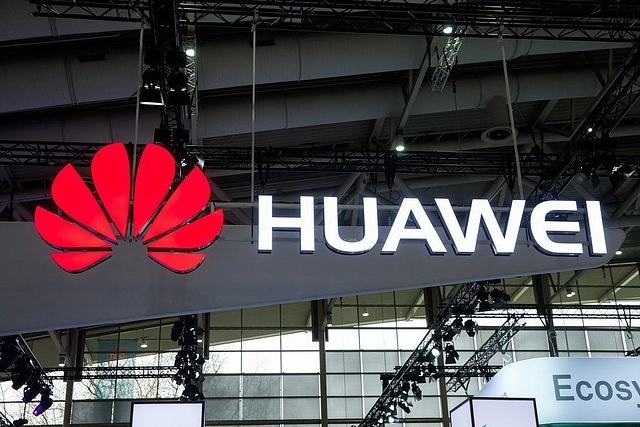
Huawei 5G Entry Should Be A Lever For Extracting Chinese Concessions Elsewhere
With respect to Huawei and the 5G trials, India should not blindly toe the US line on a ban.
We should bargain hard to obtain concessions from the Chinese political leadership before letting them in with strong riders and cyber-security protections.
Ever since some US companies discovered that Huawei had planted spyware in some of its hardware, the Donald Trump administration has banned the Chinese company from participating in US government projects.
Uncle Sam has also been leaning on allies to ban Huawei in their countries’ 5G networks. Huawei worries most countries due to its links with the Chinese military.
In India, an official expert committee headed by Principal Scientific Advisor, K Vijay Raghavan, has recommended the launch of 5G trials after excluding Huawei.
The Chinese have been huffing and puffing ever since, offering both threats and concessions. In July, the Indian ambassador to China was told by Chinese foreign ministry officials that there would be consequences for Indian firms operating in China if Huawei were to be excluded from 5G trials.
At another level, Huawei India CEO, Jay Chen, offered an olive branch, a “no-back-door” pact with India to address security concerns. A “back door” allows authorised people to gain access to a network or equipment under exceptional circumstances.
But if there is no “back door” in Huawei equipment, the equipment supplier would not be able to secretly access a customer’s network without official consent.
Given the high-stakes game Huawei is playing in India, it is clear that any final decision on allowing or not allowing the Chinese equipment giant to play a role in India’s 5G rollout will be a political one.
India’s decision, subject to safeguards against spyware, should thus be based on realpolitik, and not just commercial considerations. There is little doubt that Huawei will offer us a sweet commercial deal to get itself embedded in the warp and woof of our 5G networks.
For starters, the Chinese threat of banning Indian companies operating in China in retaliation for any Huawei exclusion is double-edged, if not empty.
China runs a massive trade surplus with India of over $50 billion annually, and any trade restrictions on Indian companies will be more damaging to China than India in the short run, though both will suffer a loss of growth.
On the other hand, Chinese perfidies against India are getting worse by the day. When India decided to revoke article 370 in Kashmir --- something that is internal to India --- China forced the UN Security Council to discuss the issue, even if informally, and with no ultimate diplomatic benefit for Pakistan.
More recently, it has come to light that China has made deep inroads in Arunachal, building a one-km road beyond the line of control in that border state.
China also continues to blackball India’s efforts to enter the Nuclear Suppliers Group (NSG).
No one can thus have illusions about China’s intentions when it comes to India. It may want trade and exports to flourish, but the Dragon country is not giving up its political goal of delaying and tripping India’s peaceful rise.
And, of course, it uses a vassal state like Pakistan to keep India perpetually off balance. Lastly, it is not willing to clearly demarcate our contested borders in the north and east --- in the Aksai Chin and Arunachal areas --- preferring instead to push its claims by covert activity.
While India wants to close the border dispute, China wants either a resolution that is entirely in its favour, or no solution at all. In the latter case, it can keep us off balance by repeated incursions in some territory or the other.
In 2017, it tried to build a road in Bhutanese territory near the Sikkim tri-junction, forcing India to physically obstruct this incursion --- the Doklam standoff left both the Chinese and Indian military in an eyeball to eyeball confrontation. It ended without any casualty, but with a marginal Chinese loss of face.
When dealing with China, three factors have to be kept in mind.
One, China respects only hard power and the ability to counter it. It cares two hoots for the law or diplomacy to sort out issues. If it senses a weakness in its rivals, it will rush to take advantage. This means our military power needs to be constantly enhanced vis-a-vis China.
Two, when dealing with China, the hard bargaining is best done behind closed doors, and not through the media. So, if Huawei’s entry into Indian 5G trials is a bargaining chip to be used for obtaining concessions from the Chinese in other areas, it has to be done behind closed doors, and not accompanied by open threats to ban Huawei.
Three, India’s real strong cards are import duties that will thwart Chinese exporters from selling more in India, and the threat to keep big players like Huawei out of 5G or other lucrative infrastructure projects.
We should offer the Chinese the possibility of winning big infrastructure contracts, but only if they are willing to make clear concessions elsewhere.
Coming back to Huawei and the 5G trials, India should not blindly toe the US line on a ban. We should bargain hard to obtain concessions from the Chinese political leadership before letting them in with strong riders and cyber-security protections.